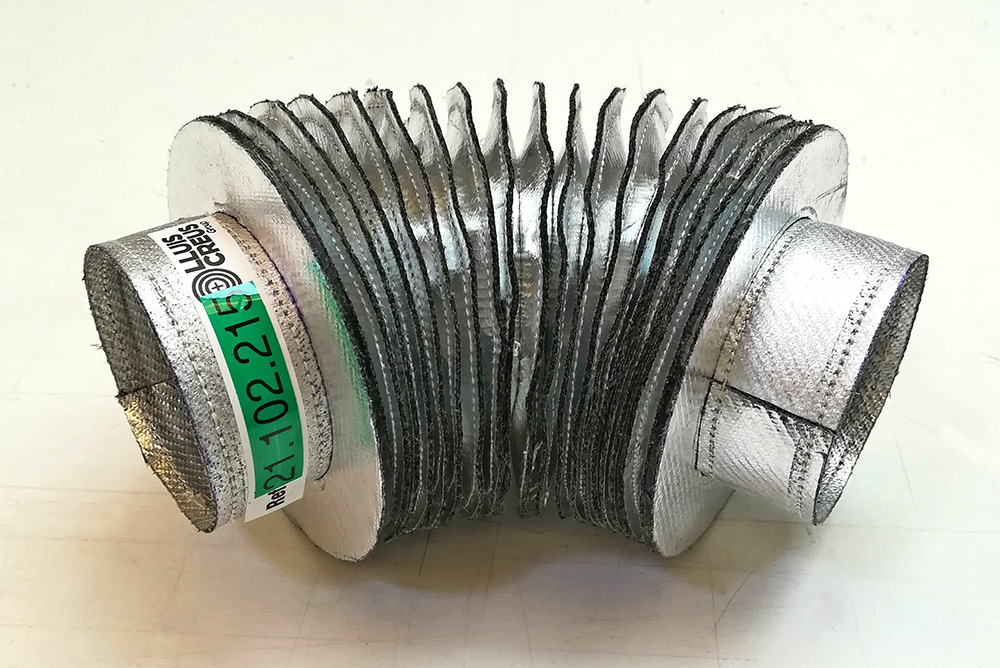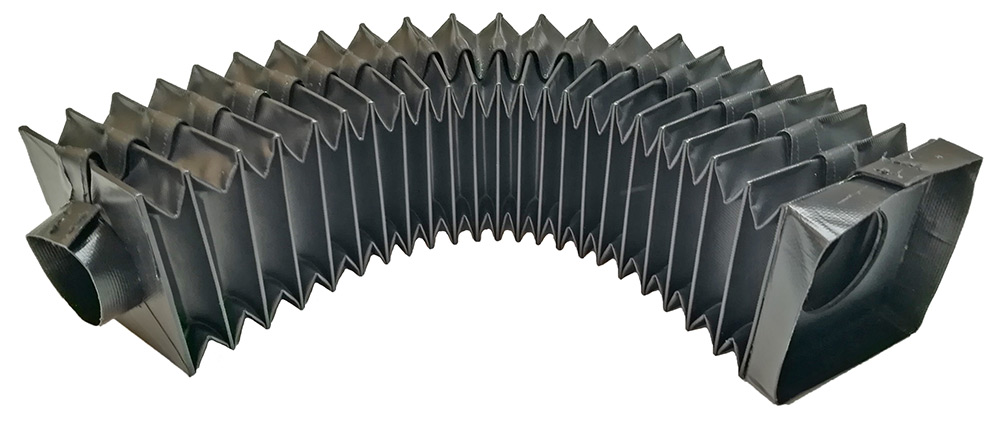In industry, tightness is not a detail: it is a critical condition for the safety and performance of machinery.
The production of bellows and machine guards requires a design that prevents the ingress of dust, liquids, oils, or chemicals.
A bellows may meet the correct dimensions, but if it does not ensure the necessary level of sealing, its lifespan is drastically reduced.
What does tightness mean in a bellows?
Tightness refers to the ability of a protection system to prevent external leaks. In the case of bellows:
- Tight: protects against liquids, moisture, or chemical agents.
- Semi-tight: offers a partial barrier, suitable for chips or dust particles.
- Vented: designed for environments where heat dissipation or internal pressure must be avoided.


Consequences of a poor selection
-
Chip infiltration that blocks spindles.
-
Premature corrosion of guides and cylinders.
-
Precision failures in CNC machinery.
-
Increased maintenance costs and unplanned downtime.

Design criteria to ensure leak-tightness
- Material selection: technical textiles with special coatings, polyurethane, rubber, or even metal bellows for harsh environments.
- Type of stitching and sealing: heat-sealed, glued, or sewn with additional coatings.
- Laboratory testing: simulations of contact with oils, acids, or chemical mists.
A well-designed bellows is an invisible shield that prevents productivity losses.
At Lluis Creus, we know that leak-tightness is not an accessory; it is the key to prolonging the lifespan of any machine.

